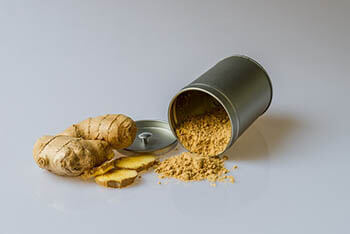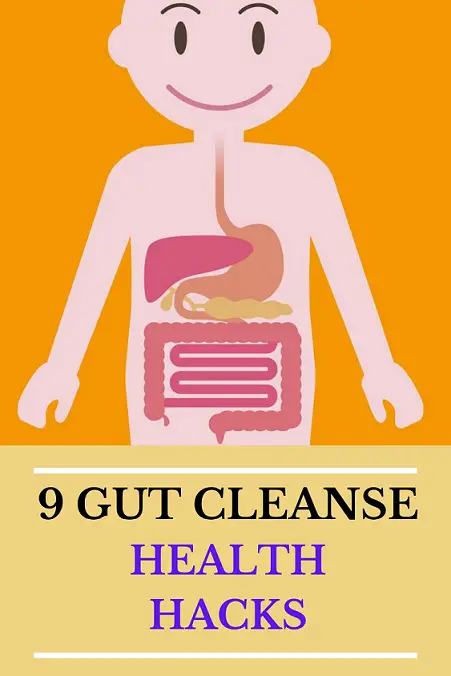The gut is an area often taken for granted. We might not worry too much about how our gut health is doing - until, of course, problems occur.
Our gut can affect our whole body, for good or bad. The gut's far-reaching effects mean that it's essential to maintain a healthy gut. Ignoring gut health now can be a recipe for disaster later on. An unhealthy gut can cause mood disorders and stomach issues, and can even cause toxins to build up in our bodies.
Fortunately, maintaining a healthy gut or colon is something you can do at home. There's no need for expensive treatments or an invasive colon cleanse unless you prefer it. Let's talk about what you can do to keep your gut healthy, and how you can tell that you need a cleanse.
Signs You May Need a Gut Cleanse
Toxins and buildup can happen in our bodies gradually. Over time, you may begin to notice that you feel fatigued, or you're having digestive health issues. While there are plenty of medical issues of varying severity that can cause these problems, the most common cause is usually an overloaded gut. Here are some symptoms to watch out for:
- Bloating and gas
- Intestinal pain
- Emotional issues (such as depression or anxiety, since our guts affect our moods)
- Frequent headaches
- Diarrhea or constipation
- Food intolerances or allergies
- Muscle pain and/or joint aches
- Skin problems/itching
- Unintentional weight loss/gain
Many of these symptoms can also be a sign of other health issues. If you're not sure, it's always wise to consult a doctor. However, it can also mean that you need a thorough colon cleanse and detox.
What Is a Detox?
Since our modern diet is rich in processed foods and refined sugar, this can take a toll on our gut. Over time, this can weaken the intestinal barriers, which in turn causes a number of other health and wellness issues. You may not have the time, money, or resources to eat only fresh-from-the-ground organic food, so some intake of processed food is inevitable.
So, periodical gut detoxes - or cleanses - are a good idea. However, some fast-acting colon cleanses require costly supplements, expensive juice diets, strict fasting, and more.
Unfortunately, this doesn't work. Replenishing gut health is simpler than many people think, and be done in the comfort of your own home. It involves eating foods that nourish your gut, drinking plenty of water, and keeping yourself de-stressed and healthy. Often, gut cleanses can be practices that are good for your overall health, too.
You might want to go a step further, with specialized herbal or laxative teas that have colon cleansing effects. A colon cleanse can leave you feeling fresh and clean, but needs to be paired with a cleansing diet and the occasional detox for best results.
Remember to listen to your body. A colon cleanse should make you feel better, not worse. Your cleansing habits don't need to be perfect, and it's OK to make mistakes and have relapses. What counts is that you commit to your cleanse.
Natural Ways to Cleanse the Gut
The beauty of these natural, at-home cleansing remedies is that you can add them to your daily lifestyle. While an occasional, serious detox can be refreshing, it's important not to replace good eating and lifestyle habits with detoxing.
1. Set Aside Time for a Serious Cleanse
If you start detoxing for the first time, you might want to consider setting aside a few days or a weekend. Some detoxes can be somewhat harsh, especially if you're not used to it. Giving yourself a few days to relax and adjust to the changes in a comfortable environment. Scheduling a cleanse when you have a jam-packed schedule is not going to be very beneficial.
2. Herbal Teas

Herbal teas offer a light, refreshing way of boosting your immune system health. There is a wide variety available, and most can be drunk at any time of the day or night. Add lemon juice to your tea for extra gut-cleansing health benefits - but avoid sugar, for obvious reasons. Here are a few types of herbal teas that are especially nourishing for the digestive tract:
- Ginger
- Dandelion
- Mint
- Fennel
- Red Clover
- Turmeric
- Garlic
Even if you're fussy with your teas, you can probably find one you like from this list. You might also find a specialized detox herbal tea available commercially. Some teas have additional properties, such as de-stressing or as a sleep aid. While this isn't directly aimed at gut health, high stress and poor sleep will have an impact on your gut and digestive tract.
3. Probiotics

A modern diet often doesn't supply enough fiber and nutrients. This means that we have to make a special effort to make sure we're getting enough probiotics. Fermented foods and other high-fiber foods can go a long way to boosting the beneficial bacteria in the gut. Try adding foods like these to your diet, all of which support beneficial bacteria growth:
- Ginger
- Leeks
- Potatoes
- Yams
- Legumes
- Beans
- High-fiber vegetables
- Whole grains
Adding probiotics to your diet (or adding more) will offer benefits that can help cleanse your gut on a daily basis.
4. Breathing Exercises
The idea of breathing exercises aiding gut health may be a strange one. However, the colon is especially sensitive to changes in the body. This includes mood changes and stress. Taking time to practice mindfulness, meditation, and breathing exercises can go a long way to promoting wellness and helping your body relax. It can also help to ease stress.
Once again, breathing exercises, yoga, and meditation are all activities that can be easily added to your daily routine.

5. Intermittent Fasting
If one of the poor-health signs that you need a gut cleanse is bloating, gas, or other digestive health issues, you may want to start with an intermittent fast. Fasting requires going for a set period without food, and it's a good way of clearing out your gut. Our bodies need rest to recover, and going for a period of time without eating can give our colon the chance it needs to recuperate. It can help reduce inflammation, help shed water weight, and more.
While the idea of fasting isn't exactly fun, you could incorporate this into your planned detox period. A twelve-hour fast would mean that you stop eating at, say, 8 pm, and don't eat again until 8 am. This isn't as difficult as you might think, yet it'll still support your digestive health.
6. Drink Plenty of Water

Regardless of what you're trying to achieve, staying well hydrated is a must. If you're focusing on detoxing, water is your friend. A glass of room-temperature water on an empty stomach does wonders for digestion.
If you struggle with overeating or food cravings, a glass of water before a meal can help you to feel full more quickly. If you're not sure whether you're craving junk foods because you're hungry or bored, water can help you decide. Drink a glass of water, and wait. If you're still hungry after the water, then eat something.
7. No Snacking Between Meals

As we've already mentioned, your gut needs rest. We often eat on the go, or without thinking. Snacking between meals means that the gut is always working, even when we're not physically eating. It's best to avoid snacking between meals when you're detoxing.
However, if you're using to eating little but often, this can be tricky. A helpful tip is to keep your cupboards well stocked with herbal tea. When you're tempted to snack, make yourself a cup of herbal tea, or even just a glass of water.
8. Get Plenty of Sleep

Most adults need a minimum of eight hours of sleep a night to support a healthy body. To let your gut recover, you'll need at least eight hours, possibly more. Sleep is the period when our bodies shut up shop to repair and rest. Try and avoid eating right before bed, as this will result in your colon working through the night. Not only can this keep you awake, but it means that your gut isn't getting the break it needs - and it may promote unwanted gut bacteria.
It's also good to avoid drinking too much before bed. That large glass of water is certainly good for you, but you might well find yourself waking up in the night needing to pee. Midnight journeys to the bathroom result in broken sleep, which means you're not getting the quality of rest you need.
However, if you do drink before bed, there are some herbal teas that can aid sleep, such as chamomile or lavender.
9. Destress

When you're stressed, your colon suffers. For example, if you suffer from anxiety, there are often physical symptoms that come along with it. These symptoms may include issues with your digestive system and stomach pain.
It's essential to take the time to relax and destress. Of course, this is easier said than done. You might find that after your weekend cleanse, you feel better - only to tense right back up again when you return to normal life.
Dangers of Detoxing
Not all gut cleanses are equal. Just like fad diets, some "detoxes" can actually be more harmful to your immune system. Harmful detoxes often include "miracle" cures that work overnight, or in the space of a day or two.
Fad detoxes may seem to work. They might produce a laxative effect, or cause you to lose weight. But is that really helpful? Often, no. Stripping your body of its nutrients is going to do more harm than good. Weight loss isn't the aim of gut cleansing. It may be a pleasant side effect, but the main goal of detoxing is to nourish your digestive system and intestines, ridding your body of toxins.
In fact, a thorough colon cleanse may end up taking several weeks, depending on your plan. Good things often take time. If your gut or immune system has felt overloaded and in poor health for a long time, chances are, the damage won't be undone overnight.
Remember, a cleanse should always make you feel better, not worse. While strict diets, fasting, or juice cleanses may be fine in the short run, these practices often aren't good to add to your daily life. If you experience digestive issues, it's possible that certain trigger foods are setting off your symptoms and resulting in unwanted gut bacteria. If you don't remove these triggers, your detox may not work properly. Common offending foods include:
- Unfermented dairy and cheese
- Alcohol
- Grains
- Foods with high sugar levels
- Refined sugar
- Additives, flavorings, sweeteners, and other artificial ingredients
Foods on this list can set off digestive reactions, and even irritable bowel syndrome. Allergies and food intolerances can develop over time. For example, you may develop an intolerance to wheat or gluten in later life.
Keeping a food journal can help you to identify trigger foods. Colon cleanses are always a healthy choice, but that doesn't mean that you don't need to consider what goes into your body. Avoiding unhealthy or processed foods gives your gut a helping hand.
When to See a Nutritionist
If your gut cleanse doesn't seem to work, it may be time to consult a nutritionist or a doctor. While most gut cleanses can be done at home, a nutritionist can help you work out an actionable plan and even identify problem areas and improve your overall health and wellness.
You might also need supplements to nourish the lining of your intestinal wall, which can be prescribed by a doctor. Remember, you have dozens of feet worth of intestines in your body, so you'd better take care of them!
If your symptoms don't go away or they get worse, it might be a good idea to see a doctor. The issues could be caused by something else. In that case, a gut cleanse won't relieve your symptoms until you address the underlying cause. Digestive issues are very common and have many different causes. Chances are, it's something simple or easily fixed.
Speak to your doctor about your short or long-term gut cleansing options. They can provide medical advice, diagnosis or treatment if needed. If you listen to your body and respect what it's telling you, it's hard to go wrong!


